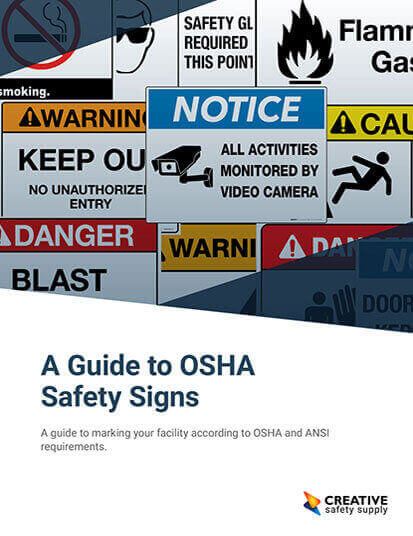
Our website offers a wide range of custom signs to meet your specific needs. We provide various options such as plastic, aluminum, and vinyl overlay signs. Plastic signs are suitable for both indoor and outdoor use, while aluminum signs are rust-proof. With our diverse selection of shapes, sizes, and materials, you can find the perfect custom sign solution for your branding and marketing needs.
Types of Custom Signs
Custom signs offer businesses and events a powerful tool to enhance their branding, marketing, and overall visual appeal. They come in various types, each designed to serve different purposes and meet specific needs. Let's explore some common types of custom signs:
- PVC Mounted Signs: These signs are made of durable and lightweight PVC that is water and chemical resistant. They provide a sleek and modern look, making them ideal for indoor and outdoor use. PVC mounted signs are available in a variety of sizes and are very cost effective.
- Vinyl Banners: Vinyl banners are versatile and weather-resistant, making them suitable for both indoor and outdoor use. They are commonly used in trade shows, conferences, and outdoor events to promote brands or convey essential messages. Vinyl banners can withstand the elements without fading or tearing, ensuring long-lasting visibility.
- Aluminum Signs: If you're looking for durability and rust-proof properties, aluminum signs are an excellent choice. These signs are perfect for outdoor applications like building signage, parking lot signs, or directional signs. Their sturdy construction guarantees resistance against harsh weather conditions while maintaining a professional appearance.
Although these are our main offerings, we have many more available on our website.
Indoor vs Outdoor Signs
Indoor signs and outdoor signs serve distinct purposes due to the environment in which they are placed. Understanding the differences between these two types is crucial in selecting the right sign for your specific needs.
Indoor Signs: Designed primarily for interior spaces like offices, stores, or malls, indoor signs focus on aesthetics and conveying essential information to customers or visitors. They come in various forms such as wall-mounted signs, floor signs, or banners. Indoor signs typically prioritize visual appeal, durability against wear and tear, and compliance with building regulations.
Outdoor Signs: Unlike their indoor counterparts, outdoor signs face exposure to weather elements such as rain, wind, and sunlight. They need to withstand these conditions while remaining visible and readable from a distance. Outdoor signs are larger in size to attract attention and often require materials like sturdy aluminum or weather-resistant plastic. Businesses use outdoor signs to showcase their brand identity, provide directions, or capture the attention of potential customers passing by.
The choice between indoor and outdoor signs depends on factors like location, environment, and the intended purpose of the sign itself. By understanding these differences and selecting the appropriate type for your needs, you can effectively communicate your message and enhance your brand visibility.
Material Variations in Signs
When it comes to designing custom signs for your outdoor business, choosing the right materials is crucial. Different materials offer varying levels of durability, versatility, and visual appeal. Here are some common materials used in custom sign manufacturing:
- PVC signs: These signs are widely used due to their affordability and versatility. PVC (polyvinyl chloride) is a type of plastic that is widely used in a variety of contexts. These signs are suitable for both indoor and outdoor use, as they are weather-resistant and durable. Additionally, plastic PVC signs can be customized in various shapes and sizes to meet specific needs.
- Aluminum signs: If you're looking for a rust-proof option that can withstand harsh weather conditions, aluminum signs are an excellent choice. These lightweight yet sturdy signs offer durability and longevity, making them ideal for outdoor use. Aluminum signs can be printed using UV ink, ensuring vibrant colors and crisp graphics that catch the attention of potential customers.
- Vinyl overlay: Vinyl overlays are a popular choice for adding graphics or lettering to existing signage. This material is versatile and easily adheres to different surfaces, such as metal or acrylic. Vinyl overlays can transform a plain sign into a dynamic and eye-catching advertisement for your business.
Choosing the right material for your custom sign depends on several factors such as the intended use, desired lifespan, and budget. Understanding the unique characteristics of each material will help you make an informed decision that aligns with your business goals.
Incorporating Brand Elements in Signage
Your sign serves as a powerful tool for brand recognition and recall. Incorporating your brand elements into the design can help strengthen the connection between your sign and your overall business identity. Here are a few strategies to achieve this:
One way to incorporate brand elements is through consistent typography. Choose fonts that reflect your brand's personality and use them consistently across all marketing materials, including your custom sign. This helps create a cohesive look and reinforces brand recognition.
Additionally, consider adding your logo to the sign design. Your logo is a visual representation of your brand, making it an ideal element to include in the signage. Placing the logo prominently on the sign helps reinforce its association with your business.
Remember that simplicity is key when incorporating brand elements into signage. Too many graphics or excessive text can dilute the impact and make it harder for people to quickly grasp your message. Strive for a clean and visually appealing design that conveys the essence of your brand effectively.
Now that we have explored the importance of incorporating brand elements in signage, let's dive deeper into leveraging signs for advertising to enhance your business visibility.

